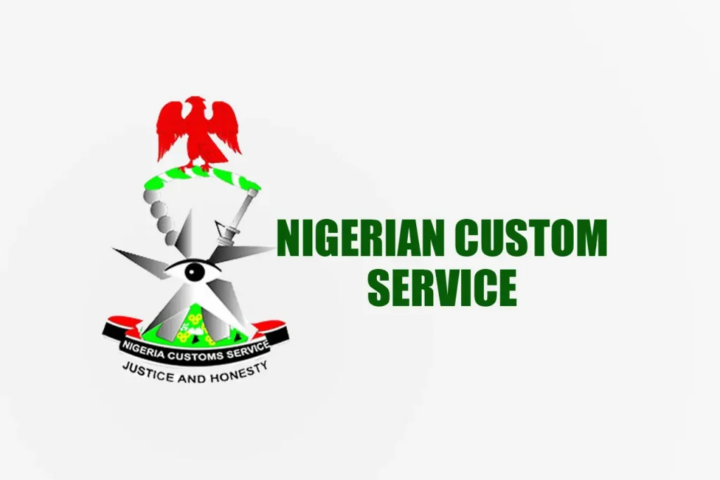The Nigeria Customs Service (NCS), Port Harcourt Area 1 Command, has announced that it collected a total revenue of ₦33 billion in October 2025, reflecting improved efficiency in port operations, enforcement, and trade facilitation within the command.The Customs Area Controller, Comptroller Babatunde Olomu, disclosed this in a statement issued by the command’s Public Relations Officer, Ifeoma Onuigbo, in Port Harcourt. He said the figure represents a significant increase compared to previous months and underscores the command’s commitment to achieving its annual revenue target.
According to Olomu, the impressive revenue performance was achieved despite challenges such as fluctuating import volumes, high exchange rates, and global trade disruptions. He attributed the success to enhanced compliance by port users, improved collaboration with stakeholders, and the deployment of digital tools to streamline customs processes.

“Our command recorded a remarkable improvement in revenue generation in October 2025, amounting to ₦33 billion. This achievement reflects the dedication and professionalism of our officers and men in ensuring efficient cargo clearance, curbing smuggling, and promoting legitimate trade,” the comptroller said.
He explained that the command had intensified monitoring and enforcement operations to block revenue leakages while ensuring that importers and clearing agents comply with all customs procedures.
“We have strengthened our risk management strategies and improved operational coordination across all units. This has helped us to enhance revenue collection, facilitate trade, and ensure security within the port environment,” Olomu stated.
He added that the command is on course to meet its 2025 revenue target, expressing optimism that sustained collaboration with port stakeholders would lead to even greater results in the coming months.
“The performance we are witnessing is a collective effort involving not just our officers but also other stakeholders — terminal operators, shipping companies, and the trading public. We are determined to maintain this momentum and even surpass our target by the end of the year,” he said.
Olomu reiterated that the Customs Service remains committed to the implementation of trade facilitation policies as part of Nigeria’s commitment to the World Trade Organisation (WTO) Trade Facilitation Agreement. He said the service is also leveraging technology to ensure transparency and accountability in revenue collection.
“Digital transformation is central to our operations. Through automation and data-driven processes, we can track consignments more effectively, reduce delays, and eliminate human interference in customs transactions,” he explained.
The Area Controller also warned against under-declaration, false documentation, and smuggling activities, stressing that the command will not hesitate to apply sanctions against offenders. He assured importers and clearing agents of a friendly business environment, provided they operate within the ambit of the law.
“We urge all port users to continue to comply with the extant customs laws and regulations. The Service has zero tolerance for non-compliance and sharp practices. Our enforcement teams are on alert to ensure that every consignment is duly declared and that appropriate duties are paid,” he said.
Olomu also highlighted the importance of inter-agency collaboration in achieving operational success, noting that the command continues to work closely with the Nigerian Ports Authority (NPA), Standards Organisation of Nigeria (SON), National Agency for Food and Drug Administration and Control (NAFDAC), and other port stakeholders to enhance efficiency.
In addition to revenue generation, the command made several seizures of contraband goods during the period under review. According to the comptroller, the seized items included foreign rice, used vehicles, and unapproved pharmaceutical products, all intercepted through intelligence-led operations.
“These seizures are a testament to our commitment to protecting the nation’s economy and ensuring that only legitimate trade passes through our ports. The duty of Customs goes beyond revenue generation — we are also protecting national security and public health,” Olomu added.
He commended the Comptroller-General of Customs, Bashir Adewale Adeniyi, for providing leadership and motivation through policy reforms aimed at promoting professionalism, accountability, and operational excellence.
“The Comptroller-General’s emphasis on innovation, staff welfare, and collaboration has greatly improved morale and efficiency within the Service. His leadership has been instrumental in repositioning Customs for better service delivery,” Olomu stated.
Stakeholders in the maritime sector have lauded the performance of the Port Harcourt 1 Command, describing it as a sign of renewed efficiency and discipline in customs operations.
A clearing agent at the port, Mr. Chuka Eze, said the improved turnaround time for cargo clearance had boosted traders’ confidence. “Customs operations have become more efficient lately. The officers are more professional, and processes are faster, which helps businesses cut costs,” he said.
Similarly, the Chairman of the Association of Nigerian Licensed Customs Agents (ANLCA), Rivers State Chapter, Mr. Francis Obi, praised the command for balancing enforcement with facilitation. “We are seeing better cooperation between Customs and stakeholders. That’s the kind of partnership that supports trade growth,” he remarked.
The Port Harcourt Area 1 Command is one of the major revenue-generating formations under the Nigeria Customs Service, covering key terminals including Onne, Port Harcourt Wharf, and other bonded facilities. It plays a critical role in Nigeria’s maritime trade, serving as a gateway for import and export activities in the South-South region.
As the command sustains its drive toward achieving higher efficiency, Comptroller Olomu reaffirmed that the focus remains on strengthening revenue mobilisation, facilitating legitimate trade, and safeguarding national interests.
“Our ultimate goal is to maintain a balance between enforcement and facilitation. By doing this, we can ensure that Nigeria’s ports remain competitive, transparent, and efficient in line with global best practices,” he said.
Support InfoStride News' Credible Journalism: Only credible journalism can guarantee a fair, accountable and transparent society, including democracy and government. It involves a lot of efforts and money. We need your support. Click here to Donate
